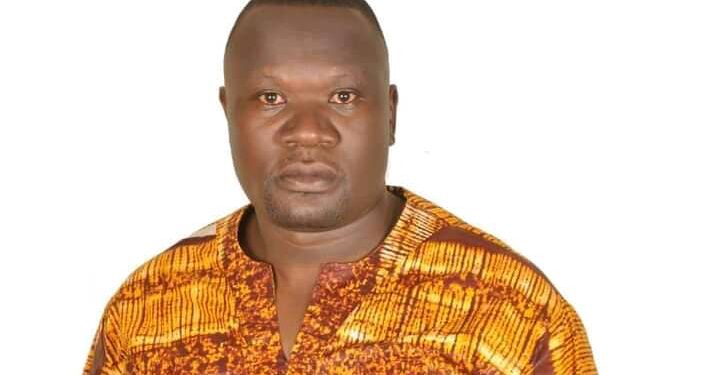I have intently followed the family of former President, Idi Amin Dada, mainly his sons, Lumumba Amin, Taban Amin and Jafar Amin. This could be mainly because the trial, unlike the other siblings, has been a mainstay in the public, making it easy for an inquisitive public to grasp something from their embattled family history.
One major takeaway for me in my years of studying the family is the sharp contrast between Taban and Jaffar on one hand and Lumumba on the other.
The world concluded a long time ago that Idi Amin Dada was the worst thing to have happened to this beautiful pearl- Uganda as a president and we have moved on. Whereas Taban and Jaffar seem to have owned up to the troubled descent, Lumumba looks determined to live in denial perhaps for the remainder of his life, desperately fighting to sanitise what will never change after over four decades since the fall of the bloodstained regime superintended over by his father.
A letter by the President of Uganda, General Yoweri Kaguta Museveni guiding the Minister of Education on the proposed establishment of the Idi Amin Institute by one Member of Parliament attracted wild noise from the characteristically controversial son of one of the World’s dictators named in history, further amplifying the need for family, friends and well-wishers to intervene and help this son of Amin before his mental health degenerates to something more sinister that we can afford to endure.
Amin Lumumba spends his lonely life trying to engineer scapegoats for his late father’s bloodthirsty actions even though it has already been a decade and so since he reigned and plagued this beautiful pearl with terror. Ironically, his younger sibling, Jaffar Amin seemed to have moved in, accepting that he was sired to a great father who committed grave mistakes but the World shouldn’t dwell on the same forever, there is a need to move in.
Through his Idi Amin Foundation, Jafar has extensively advocated for reconciliation, reaching out to various families whose loved ones fell to his father’s troubled reign, including the family of Oboth Ofumbi and Arch Bishop Jonan Luwum. Ironically, like in the case of former Chief Justice, Ben Kiwanuka whom Lumumba loudly tried to tag on President Museveni, he also tries unconvincingly to find someone else to tag the death of Luwum on someone else.
For those who were mature enough to witness the atrocities of the Amin military regime in Uganda and those of us who have read history, I doubt anyone enough would have reasons to question President Museveni’s guidance on the purported plot to establish an institute in memory of Idi Amin.
Idi Amin Dada’s regime was an unconstitutional government that disregarded the rule of law and basic human rights. Amin’s rise to power through a military coup in 1971 marked the beginning of a dark era for Uganda. His regime was tainted by widespread human rights abuses, including extrajudicial killings, torture, and forced disappearances. Rejecting the request for an institute in his memory is a necessary step to ensure that such a brutal legacy is not glorified or celebrated.
One of the most heinous acts committed by Amin’s regime was the killing of Lango soldiers in Mbarara. Amin targeted soldiers from the Lango ethnic group, leading to the loss of innocent lives and exacerbating ethnic tensions within the country. By rejecting the request for an institute in Amin’s memory, Museveni is sending a strong message that such acts of violence and discrimination will not be tolerated or honoured.
Amin’s regime also targeted religious leaders, with prominent figures like Ben Kiwanuka falling victim to his brutal regime. Kiwanuka, a respected lawyer and politician, was abducted, tortured, and eventually killed by Amin’s henchmen. By rejecting the request for an institute in Amin’s memory, Museveni is acknowledging the suffering endured by religious leaders and ensuring that their sacrifices are not overshadowed or forgotten.
Amin’s decision to expel Indian entrepreneurs from Uganda had severe consequences for the country’s economy. The expulsion of this skilled and industrious community resulted in the collapse of numerous businesses, leading to a significant decline in economic growth and development. Museveni’s rejection of the request for an institute in Amin’s memory demonstrates his commitment to fostering a conducive environment for economic growth and stability, free from the mistakes of the past.
Whereas it’s understandable for a son to try and defend their parents in wrong, it would cast a heavy burden upon us as a generation to try to sanitise the worst mistake in our history just because we don’t want to displease some disgruntled family members. Amin was a bad choice for a leader during his time and all we need to do is to forget him and move on. Any acts that intend to gratify and glorify him would provoke the multitudes whom bloodstained leadership affected.
But as things stand, there seems to be a high likelihood that Lumumba Amin is suffering from some psychological impairment that needs to be addressed sooner rather than later, oral else it gravitates into something more dangerous.
The Writer is the Deputy RCC for the Soroti East Division
Do you have a story in your community or an opinion to share with us: Email us at editorial@watchdoguganda.com













